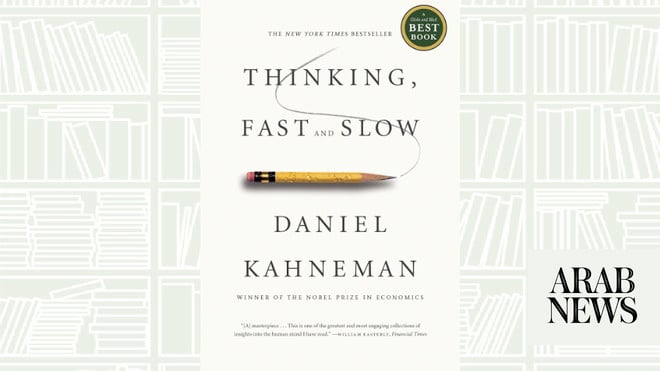
Written by Nobel Prize-winning psychologist Daniel Kahneman, “Thinking, Fast and Slow” discusses the polarity of two systems of thought processing.
The book, published in 2011, describes the fast system as emotion-driven with automatic operations, while system two is slower, more logical, and with controlled operations.
The author has divided his book into five parts, each with an overarching theme of regulating thought processes.
Section one introduces awareness of the two systems, and how to understand and utilize them for ultimate psychological operations. Kahneman notes that an individual’s associative memory dictates how they view the world around them.
In parts two and three, he begins to dissect the pros and cons of both systems, starting by exploring a major difficulty faced by most people: Why do they find it easy to think socially and metaphorically but not statistically with facts and numbers?
The fourth section of the book branches out to the original prospect theory — a psychological theory of choice that can be applied to economics — behind Kahneman’s research with his Israeli cognitive psychologist colleague Amos Tversky, while part five looks at the research and scientific findings of the theory and its possible flaws.
Kahneman is a professor of psychology and public affairs emeritus at the Princeton School of Public and International Affairs, in the US, and the Eugene Higgins professor of psychology emeritus at Princeton University.
He gained a bachelor’s degree in psychology from the Hebrew University of Jerusalem, and a Ph.D. from the University of California, Berkeley.
He is a member of numerous societies including the Philosophical Society, the American Psychological Society, the Society of Experimental Psychologists, and a fellow at the American Psychological Association.
In 1982, Kahneman received the American Psychological Association’s Distinguished Scientific Contribution Award, the Warren Medal of the Society of Experimental Psychologists in 1995, the 2002 Nobel Prize in economic sciences, and in 2007, the Lifetime Contribution Award of the American Psychological Association.












